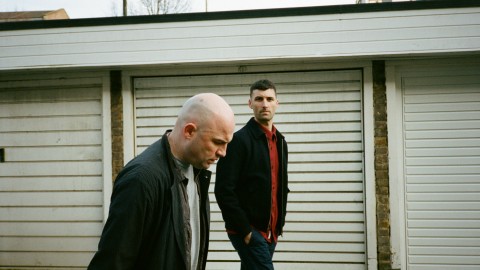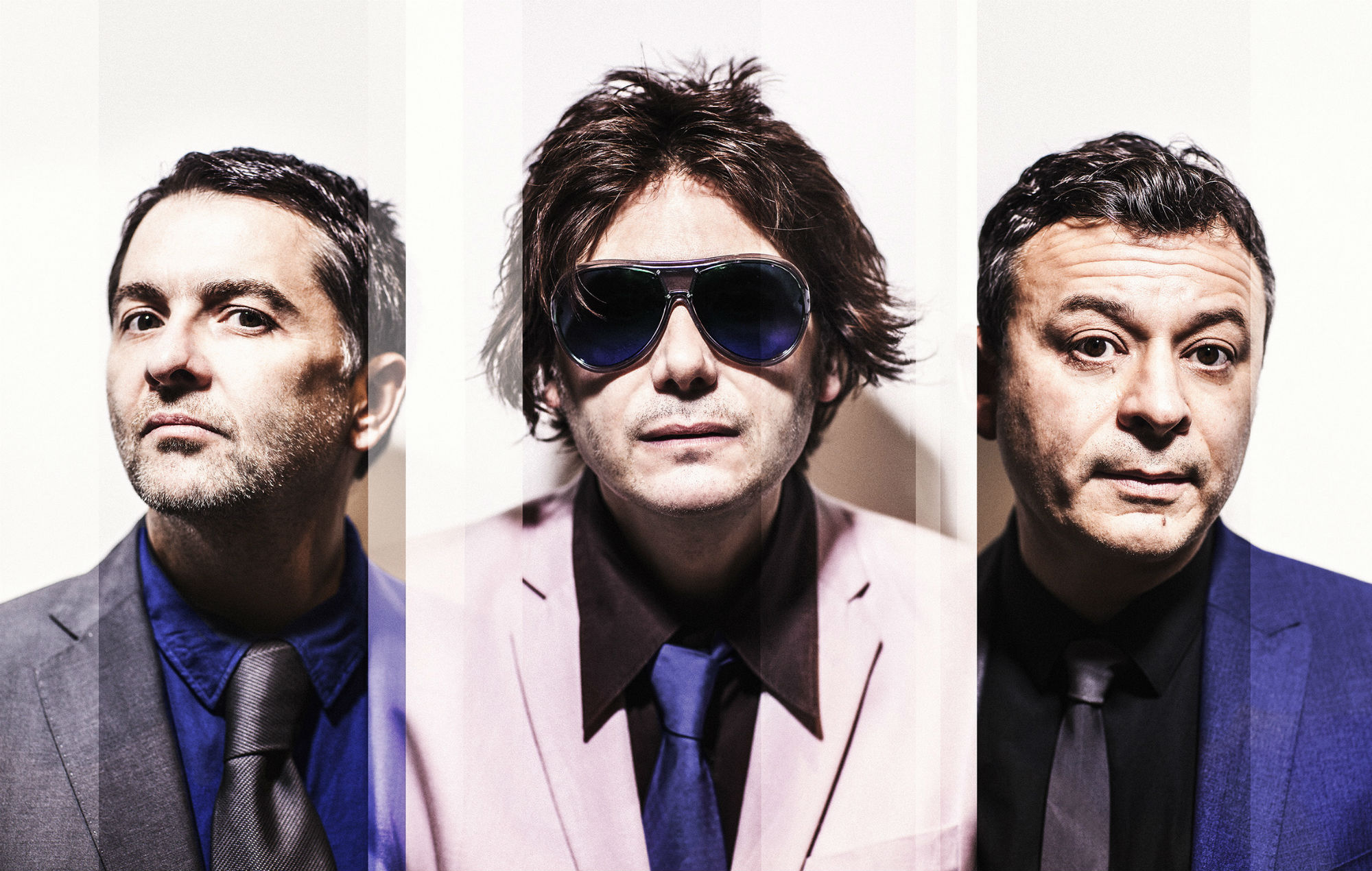
Towards the end of NME’s conversation with the team behind new drama Rocks – stars Bukky Bakray and Kosar Ali, director Sarah Gavron and second unit director Anu Henriques – Gavron makes a request. She wants to stress how collaborative the film was, and asks if terms like “Sarah Gavron’s Rocks” or “Rocks by Sarah Gavron” can be avoided. “’Directed by’ is one thing, but authorship is another one entirely,” she explains.
Produced, supported and acted by an army of young, diverse women from London, Rocks is the story of a teenage girl (Bakray) who struggles to look after her younger brother when their single mum takes off one morning. Left with no choice but to fend for themselves, she turns to her ever-reliable school friends (led by Ali’s Sumaya) for help. What follows is a raw and hopeful coming-of-age story, powered by a dynamic debut performance from Bakray.

Cast in an unconventional process, Bakray first met Gavron and Henriques in 2013 when they headed out to local schools and youth centres to observe young girls’ behaviour. During six months of workshops, the creative team – the directors but also the writers and casting agents – made notes on many young actors, but it was Bakray and Ali’s obvious chemistry that made them sit up and take notice. “As soon as we met we just clicked,” says Ali. “We got kicked out in our first workshop because we were laughing too much and Bukky goes, ‘Kosar, we ain’t coming back, that’s it…’” Of course, the two friends did eventually return – and the film started to grow around them.
At the same time, a loose idea for a script had started to emerge: “Six months in, we thought: ‘What is going to hold all these characters and ideas together?” remembers Gavron. “That’s when [co-writer and playwright] Theresa Ikoko, who had also been sitting in on the workshops, said, ‘I’ve got this story, it’s a love letter to my sister and all the young Black and brown women who have to grow up before their time.’”
Luckily, Bakray, who like Ikoko is British-Nigerian and grew up in Hackney, fell in love with the script immediately. “We’re so used to being in a society that takes,” says Bakray. “So being able to receive something so selfless, so giving like Rocks, it’s such an amazing feeling.”
This highly-collaborative process makes Rocks feel truly authentic, partly because it gives Black and brown communities a rare public platform to reflect on their everyday. Ali, who is from Somalia, was able to bring a level of care and detail that’s impossible to make up. “Somali communities across the world have been saying to us that they hadn’t seen themselves reflected so honestly as they were by Kosar and her screen family,” Henriques explains. “That’s because of the generosity of what she brought to the table – the tastes, smells and energy of that space. There’s a real magic and playfulness to her, and she was so open in terms of the pride she has for her own community.”
On how important those small moments can be, Bakray adds: “It’s often said that the Black mundane experience wouldn’t be interesting in this industry. In order for it to be a worthy Black experience it would have to be an insane struggle, something overdramatised for the audience to engage with. But the small stuff is what’s truly special.”

After finalising the script, the team got to work on actually shooting the thing. Filming took place in London, mostly Hackney, when Bakray and Ali were 14 and 13 years old respectively – they’re now 17 and 16. The creative team had a pretty clear idea of how to bring this story to life from their months of research – but naturally, working with a cast filled with first-time actors threw up a few surprises.
“We weren’t even meant to have a food fight!” says Ali, remembering her favourite day on set, in which a classroom argument results in the girls laughing and slinging pancake batter across the room at each other. “We were told not to throw anything because of continuity, but Bukky got everyone fired up! My character was meant to be upset but I was too busy laughing.”
Improvisation leads to some of the film’s best scenes: a spontaneous dance class led by Rocks; a riff on rock classic ‘Proud Mary’ shot via Snapchat filters. But this lightness in tone always carries a weighty message, which Bakray acknowledges: “It was about Rocks taking a breather from the real world. People might say food fights are unrealistic but it felt so real at the time – it felt like freedom.” On how Bakray made Rocks her own, Henriques adds: “There’s a silent strength to Bukky. But then someone will make her laugh and she crumbles into this light of joy and smiles and laughter. To hold both distinct emotions was really important.”

In the midst of historic anti-racism protests, the film doesn’t shy away from highlighting structural inequalities. In one scene, Rocks’ white classmate Agnes calls social services when she discovers her friend has nowhere to live. Agnes thinks the authorities will be able to help, but Rocks and her young brother are separated as a result. “If you’re from Black and brown communities, your interaction with services that are built to supposedly protect and serve you do not,” Henriques says. “Often those interactions are very violent and harmful – Rocks’ relationship with these services will never be the same as Agnes’. Even though they live down the road from each other, they’re worlds apart.”
Watching Rocks as a white person in 2020 feels like an education – but it was also informative for the filmmakers, too. “I was on the biggest learning curve in every way,” admits Gavron. “The girls were expressing themselves in their own words and owning those moments. Kosar came up to me at the end of one scene and just said, ‘Sarah, this scene is totally dead.’ So we rethought it and did it again!”
Conversely, the girls also gleaned a great deal from the experienced adults: Gavron, Henriques and other “big sister” figures on the team – Bakray now sometimes checks in with Ikoko before a night out. The young star also recalls, in particular, a way Gavron helped her see London, her hometown, in a new light. “It made me realise London is cooler than I think,” she says. “Sarah really wanted to film at Dalston market and I thought, ‘Why are you so obsessed? It’s just a market with people getting plantain?’ But then seeing Rocks walking through it I just thought, ‘This is cool, this is vivid, this is beautiful. The one time I’d spotted London onscreen before was in Top Boy – so it’s such a good feeling to now have that with Rocks.”

Throughout the process – from workshopping to filming and now spreading the word – a sense of family emerged among the women of all ages. “Rocks tells the story of so many young Black women who go through such hardship and still boss it,” says Ali, before Gavron adds: “A film crew can be invested, but still feel very unconnected – you might have a story about women made by lots of men, for example.” That’s not the case here, as 75 per cent of the production was female. With Henriques, Wilson and Ikoko’s years of experience of working with young people in the criminal justice system, refugees and budding creatives, there was always going to be a desire to platform those who don’t usually get given the spotlight.
“The relationships we’ve built with these girls have been some of the most impactful ones I’ve had,” Henriques admits. “It feels so important to recognise that in an industry that isn’t notoriously good at long-term support and commitment to young people.”
And it’s true – which is why Rocks feels so special, for those who lived it, and those who can now watch it. Bakray calls the experience a “utopia”, and Ali can’t stop beaming. And why would she? It’s her film as much as it is Bakray’s, Henrique’s, Ikoko’s and Wilson’s. Gavron was right – this isn’t a film by one person. “There’s a feeling you’re creating a world where people can become those new storytellers,” she says. “The next generation.” Rocks speaks to, and belongs to, girls everywhere. And it hasn’t come along a moment too soon.
‘Rocks’ is in UK cinemas now
The post “‘Rocks’ is for young Black women who go through hardship – and still boss it”: inside 2020’s best teen drama appeared first on NME Music News, Reviews, Videos, Galleries, Tickets and Blogs | NME.COM.








